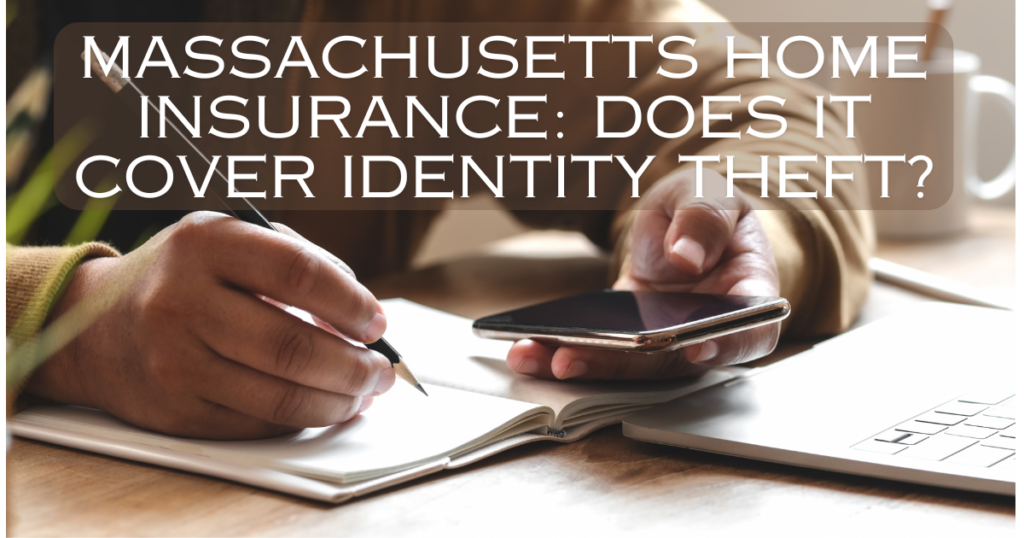Massachusetts Home Insurance: Does It Cover Identity Theft? | Blog | Vargas & Vargas Insurance

In today’s digital age, it seems like we can’t go a week without hearing about a major company experiencing a data breach. Credit card numbers, personal identification data, and passwords are constantly at risk as cybercriminals relentlessly seek ways to drain our bank accounts or make unauthorized purchases in our names. As these incidents become more frequent, various insurance products have emerged to protect against such losses. Even home insurance policies have started to offer some protection. But the question remains: does your Massachusetts home insurance actually cover identity theft?
Yes, Home Insurance Can Provide Identity Theft Protection!
Many major, standard home insurance companies now offer an endorsement on their policies for identity fraud protection. Typically, most home insurance policies cover theft of personal items like electronics, jewelry, art, or firearms. However, identity theft is different as it usually doesn’t involve tangible property (except maybe your wallet). As a result, the base theft coverage in your home insurance policy won’t protect you against identity theft. That’s where the endorsement comes into play.
An endorsement is additional coverage added to your policy to enhance protection. In most cases, you’ll need to ask about this line item as it’s usually optional rather than automatically included.
What Does Identity Theft Coverage Include?
It’s important to understand that identity theft coverage on your home insurance policy is not a preventative measure. Just as your home policy doesn’t prevent a fire or hail storm, identity theft protection kicks in after a breach has occurred.
This endorsement provides monetary reimbursement for losses resulting from a breach. It can help you:
- Restore credit reports
- Recover lost funds
- Compensate for lost wages resulting from time spent cleaning up the mess
This support can be invaluable to a family if the damage reaches into tens of thousands of dollars.
Should You Add This Coverage?
Let’s start with the fact that identity theft coverage on your Massachusetts home insurance policy is only reactionary. If you’re looking for real-time monitoring and protection against a breach, this won’t solve your problem entirely. You’ll still have some exposure to risk.
There are many services out there that offer real-time monitoring, which can be great for Massachusetts residents. These services often come with additional benefits to help you piece things back together after a breach. That’s where you should look for comprehensive protection.
However, for typically just a few dollars a year, you can have a backstop to protect against financial losses if a breach occurs. This home insurance endorsement can serve as an extra layer of protection.
The Evolving Landscape of Home Insurance
Massachusetts homeowners insurance policies have become robust solutions to many problems beyond the basic concerns of fire, hail, and water damage. Insurance companies have made them complex to account for all the things that can go wrong in a homeowner’s life.
Whether or not these additional coverages are right for you depends on how you intend to use them and what you’re trying to accomplish. Working with a local independent insurance agent will allow you to view the entire marketplace and find a policy that suits your needs, desires, and budget.
Take Action to Protect Yourself
Don’t leave your identity and financial well-being to chance. If you’re unsure about your current coverage or want to explore adding identity theft protection to your home insurance policy, it’s time to take action.
Reach out to Vargas & Vargas Insurance at 617-298-0655 for expert guidance. Our knowledgeable agents can help you understand your current policy, explain the benefits of identity theft coverage, and assist you in making the best decision for your unique situation.
Remember, in today’s digital world, identity theft isn’t a matter of if, but when. By taking proactive steps now, you can ensure you have the protection you need when you need it most. Don’t wait for a breach to occur before you act. Call Vargas & Vargas Insurance today and secure your peace of mind.
By insuring with Vargas & Vargas Insurance, you’re not just getting a policy – you’re gaining a team of local experts dedicated to protecting what matters most to you. We understand the unique needs of Massachusetts homeowners and can tailor a solution that offers comprehensive protection without breaking the bank.
Don’t let identity theft catch you off guard. Call 617-298-0655 now and let Vargas & Vargas Insurance help you safeguard your identity and financial future.


